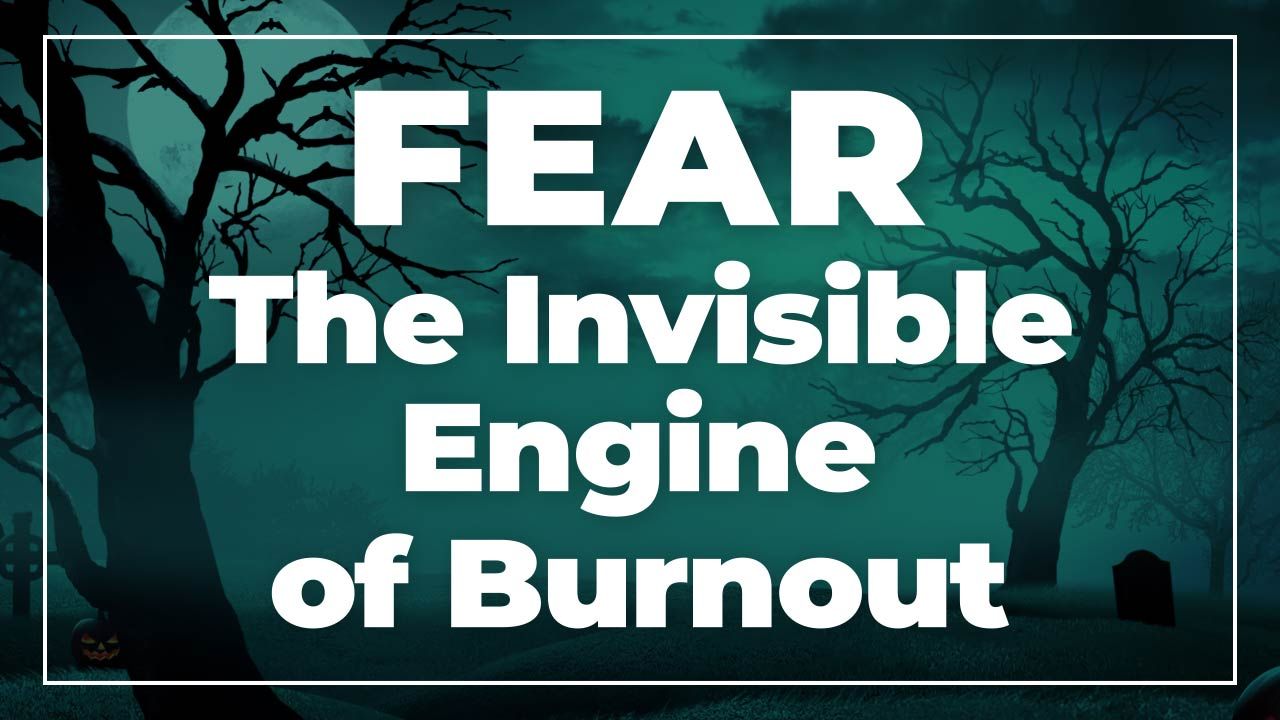
The Invisible Engine of Burnout: Fear
Jul 01, 2025The Invisible Engine of Burnout: Fear
We talk a lot about the obvious culprits behind burnout—too much work, not enough boundaries, the endless hustle culture. But there's a quieter driver that rarely gets mentioned: fear.
Fear might be the most exhausting emotion we carry, because it doesn't just affect us in the moment—it rewires how we approach everything. And when fear becomes the background soundtrack of our daily lives, burnout isn't just likely; it's inevitable.
The fear that fuels burnout usually isn't the dramatic, movie-style terror. It's the persistent, low-grade anxiety that whispers constantly: What if I'm not good enough? What if I fail? What if they find out I don't know what I'm doing?
This fear manifests in predictable patterns. We say yes to everything because we're afraid of disappointing people. We work longer hours because we're afraid our output isn't sufficient. We avoid taking risks or starting new projects because we're afraid of failing publicly. We keep pushing through exhaustion because we're afraid that rest means weakness.
The cruel irony? The very strategies we use to avoid our fears—overworking, people-pleasing, perfectionism—are precisely what burn us out. We exhaust ourselves trying to outrun the possibility of not being enough, only to end up proving our inadequacy through sheer depletion.
Recognizing Fear-Driven Burnout
Fear-driven burnout has some telltale signs. You feel anxious even when things are going well. You can't celebrate wins because you're already worried about the next challenge. You find yourself working harder, not smarter, because effort feels like the only thing you can control. Rest feels dangerous, like you're falling behind or letting people down.
Breaking the Fear-Burnout Cycle
The antidote isn't eliminating fear—that's impossible. It's changing your relationship with it. Start by naming the fear driving your behavior. Are you afraid of disappointing others? Of not being competent? Of being discovered as somehow fraudulent?
Once you can see the fear clearly, you can challenge its logic. Ask yourself: What's the worst that would actually happen if this fear came true? Usually, the catastrophic scenarios our minds create are far worse than reality.
Practice making decisions from curiosity rather than fear. Instead of "What if I fail?" try "What might I learn?" Instead of "What if they don't like it?" ask "What if they do?"
The Real Truth
Here's what fear doesn't want you to know: you can handle more than you think, and you can survive being imperfect. The very things you're afraid of—making mistakes, disappointing someone, not having all the answers—are just part of being human.
And honestly? The mistakes usually make the best campfire stories anyway. Nobody gathers around telling tales about the time everything went exactly according to plan. They tell stories about the time the presentation crashed, the project went sideways, or they completely misread the room—and somehow survived, learned something, or even discovered something better in the process.
When you stop running from fear and start walking alongside it, something amazing happens. You stop exhausting yourself trying to avoid the inevitable uncertainties of life, and you start using your energy for what actually matters.
Don't miss a beat!
Get motivation and insights delivered to your inbox. No spam, no B.S.
We hate SPAM. We will never sell your information, for any reason.

